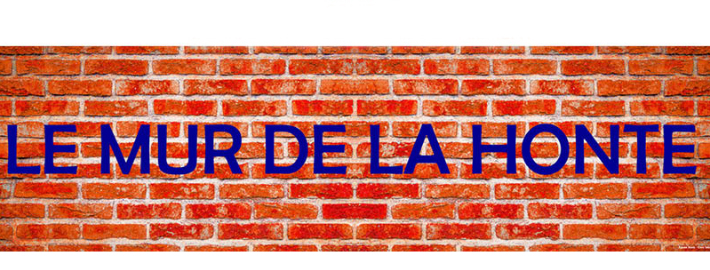GLOBAL
INDUSTRIE
News
Share on

SNESE nails the profiteers of the Covid 19 crisis to its Wall of Shame
It is unfortunately a constant of history: while crises reveal the altruistic and heroic tendencies of some people, they also bring out the dark side in others. You only have to switch on your TV to see that the exemplary behavior of caregivers who work tirelessly every day is sometimes mirrored in a negative way by the attitude of some of their neighbors, who ask them anonymously to move house to avoid the risk of contaminating them. Such people are fortunately a very small minority, but they sadly still exist…
The same is true at present in industry, as noted bitterly but lucidly by Richard Crétier, who has created, on the website of SNESE, the French association of electronics subcontractors, a Wall of Shame displaying the edifying letters of certain customers who are taking advantage of the crisis to try to avoid paying their suppliers…
THE NEED FOR SOLIDARITY IN INDUSTRY
Industry has been hit very hard by the coronavirus crisis and needs to show genuine strong solidarity at this time. The situation may thus lead certain companies, experiencing genuine financial difficulties and ineligible for the various aid schemes set up by the Government, banks or the BPI (the French Public Investment Bank), to ask their suppliers for longer payment terms than those stipulated in their contracts. These suppliers should then be understanding and help their customers by working with them to find a solution suited to each party’s needs.
WAR PROFITEERS
But what are we to think of those customers who are taking advantage of the situation to decide unilaterally not to pay their suppliers, to impose abusive payment times on them, or to postpone or simply cancel their orders? We should certainly not think anything good about them, stresses Richard Crétier, who posts on the SNESE website, hiding the writers’ names, letters written by what should rightly be called “war” profiteers, to use the French President’s comparison.
UNFAILING INVENTIVENESS
The abusive practices of these bad payers, who all originally signed orders, take many different forms. Based on the principle that the delivery triggers the invoicing, one person, ignoring the contract signed, decided to refuse the delivery. A lesser evil compared to another person, who simply took the part of the shipment he was interested in… and then refused the rest! Others, "forgetting" the equipment purchased and the production started by their suppliers, inform them that they are cancelling their orders or postponing them indefinitely.
And what are we to make of another person who, having learned that his supplier had obtained a guarantee from the State on a bank loan, asks this supplier to hand part of it over to him because, after all, isn’t it partly thanks to him?
ONE RULE: DON’T BE A PUSHOVER
"Perversity seems to be becoming a quality for certain purchasers …", observes Richard Crétier wryly. And it is all the sadder to see that such behavior is often engaged in by large companies. While one might be surprised by this, he explains that "there is unfortunately a genuine logic behind this". By postponing their payments, these big companies, often listed on the stock exchange, strengthen their cash flow at the expense of their suppliers.
This remains nothing more than a gamble. They know better than anyone that such behavior is against the law, and that failure to pay on the date stipulated in the contract is an offence punishable by penalties for late payment. However, they base themselves on the principle that if half of the suppliers to whom they have sent these letters bow down to them, often out of fear of subsequent reprisals, then it’s worth giving it a try. Indeed, fearing that they will be targeted by the Business Mediation authority or the DGCCRF, which SNESE recommends addressing, they generally pay without a whimper those who refuse to be part of this system!
AN ADVICE SHEET TO ASSIST SUPPLIERS
To help companies to combat the various strategies used by customers trying to force them to accept late payments, the association has published an advice sheet containing arguments to counter them. In addition to a reminder of the law, the penalties provided for and the very clear position of the State on this question, it is advisable in particular to inform the customer that if its refusal to pay on the agreed date is due to financial problems, its supplier is prepared to help it.
The sheet thus lists possible assistance measures to be proposed to the customer: opening of a negotiation file, copying of documents testifying to its financial difficulties, deferment of payment for an additional non-renewable period of 30 days, etc.
2020.06.22